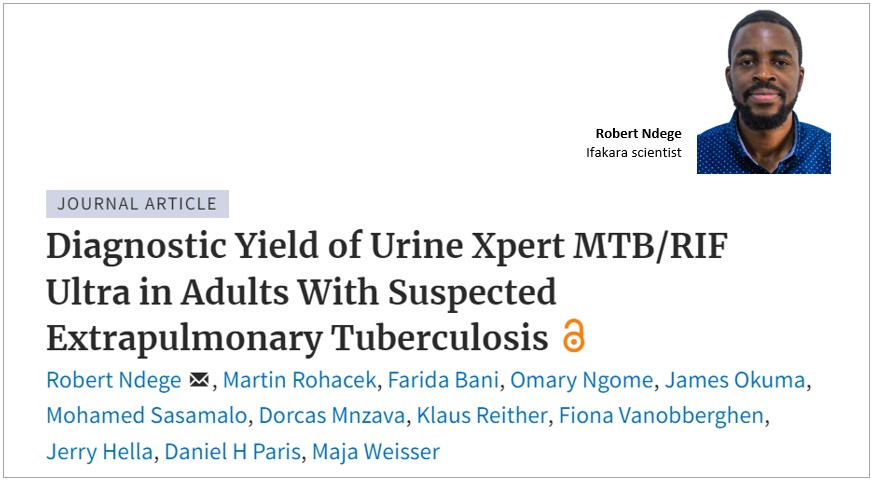
EVALUATION: Scientists confirm new TB test for high-risk groups

Scientists at the Ifakara Health Institute, Tanzania and the Swiss TPH, Switzerland have confirmed that the "Urine Ultra Test" significantly improves the diagnosis of tuberculosis in high-risk groups, including people living with HIV, severely ill patients, and in-patients.
This simple, non-invasive test makes it easier to detect TB and could enhance treatment outcomes in vulnerable populations. Unlike the traditional sputum test, which many patients find difficult to provide, the Urine Ultra Test requires only a urine sample, simplifying the process and ensuring discretion.
Most patients prefer urine testing over sputum due to its ease and discreetness in acquiring a sample.
Test evaluated for TB outside the lungs
Extrapulmonary tuberculosis (EPTB) refers to tuberculosis (TB) that affects parts of the body other than the lungs. While pulmonary TB (which affects the lungs) is the most common form, TB bacteria can also spread through the bloodstream or lymphatic system to other organs and tissues, causing infections in various parts of the body.
Generally, EPTB is more challenging to diagnose than pulmonary TB and often requires invasive procedures to obtain tissue and/or fluid samples.
>> Learn more about this type of TB here.
First study to evaluate this test
This study is the first to evaluate the effectiveness of the Urine Ultra Test in diagnosing adults with suspected EPTB. Published on the Open Forum Infectious Diseases journal, the study highlights the ease of obtaining urine samples, with 99% of participants able to provide them compared to only 59% for sputum samples.
"Given the ease of acquiring a urine sample… our study supports the integration of urine Ultra testing in the diagnostics of EPTB. This is particularly important for people with HIV, severely ill patients, and those who are hospitalized," reported the scientists.
Effectiveness in detecting TB
The study also found that the Urine Ultra test was the only method to confirm TB in 26 participants, demonstrating a 7% detection rate among those with definite or probable TB, underscoring the test's potential to identify TB cases that other methods might miss.
Consistent with previous studies, the Test proved more sensitive for people with advanced HIV but did not significantly add to sputum testing results. The study matched findings from South Africa where 64% of urine samples tested positive for TB in people living with HIV with advanced disease.
Following these findings, the scientists recommend integrating urine Ultra testing in the diagnostics of EPTB, particularly for high-risk groups like people living with HIV and severely ill patients. This approach promises better detection and treatment outcomes, potentially reducing TB-related illness and death.
Ifakara and Swiss TPH lead the study
The study was led by scientists from the Ifakara Health Institute, with Robert Ndege as the lead author, supported by colleagues Martin Rohacek, Farida Bani, Omary Ngome, Mohamed Sasamalo, Dorcas Mnzava, Jerry Hella, and Maja Weisser. Contributing from Swiss TPH were James Okuma, Klaus Reither, Fiona Vanobberghen, and Daniel Paris.
>> Read the publication, here.
